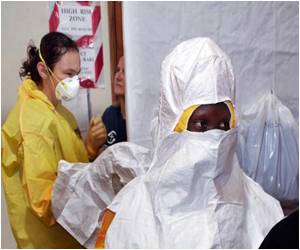The World Health Organization (WHO) has hailed the vigorous efforts being progressed across the world as the deadly Ebola virus is infecting only a fewer people.

"The tendency is really that in many places we have decreased the transmission through funerals," he told reporters in Geneva.
The drop, he explained, is linked to strict procedures put in place to ensure not only safe but also dignified burials in the three west African countries at the heart of the outbreak that has claimed nearly 5,000 lives.
The WHO has set a target of ensuring that 70 percent of Ebola burials in Guinea, Liberia and Sierra Leone are safe by December 1.
While the numbers vary between districts in the different countries - ranging from around 50 percent in western Sierra Leone to as high as 80 percent in the east of the country - Formenty said the target "will probably be reached".
Important to respect customs
Advertisement
The manual, based on dialogues with a range of Christian and Muslim organisations, emphasises the importance of protective gear but also of including family members in burial rituals by for instance allowing them to dig the grave or view and pray over the body.
Advertisement
Ebola is at its most contagious stage in a person dying or who has just died of the virus, so safety procedures must be stringent, Formenty said. He stressed though that it was equally important to try to accommodate the traditions of the families and communities as far as possible and to explain the procedures to them.
Otherwise they would reject assistance in the burials and transmission, which appears to be flattening in many places, would pick up again. "It's not because this is Ebola that these people do not have the right to be buried in a dignified way," he said.
Panu Saaristo, head of Emergency Health at IFRC agreed, stressing that providing respectful and dignified burials was "important for the entire social cohesion in the communities".
WHO has said around 500 safe burial teams, each made up of six people, including body handlers, disinfectant sprayers and a community communicator, are needed in the three countries.
Local Red Cross volunteers constitute the vast majority of safe burial teams in the hard-hit countries, and the organisation is rapidly ramping up the numbers of teams.
Saaristo stressed the need to ensure the teams have enough protective equipment, but also to provide them with moral support. "They are doing a really hard job and they are often stigmatised and even ostracised from their own communities," he pointed out.









